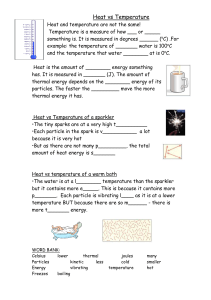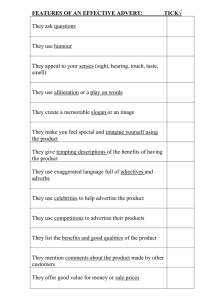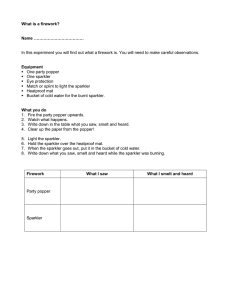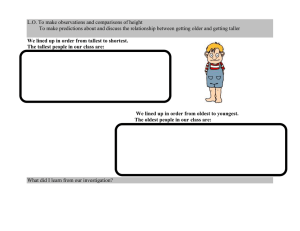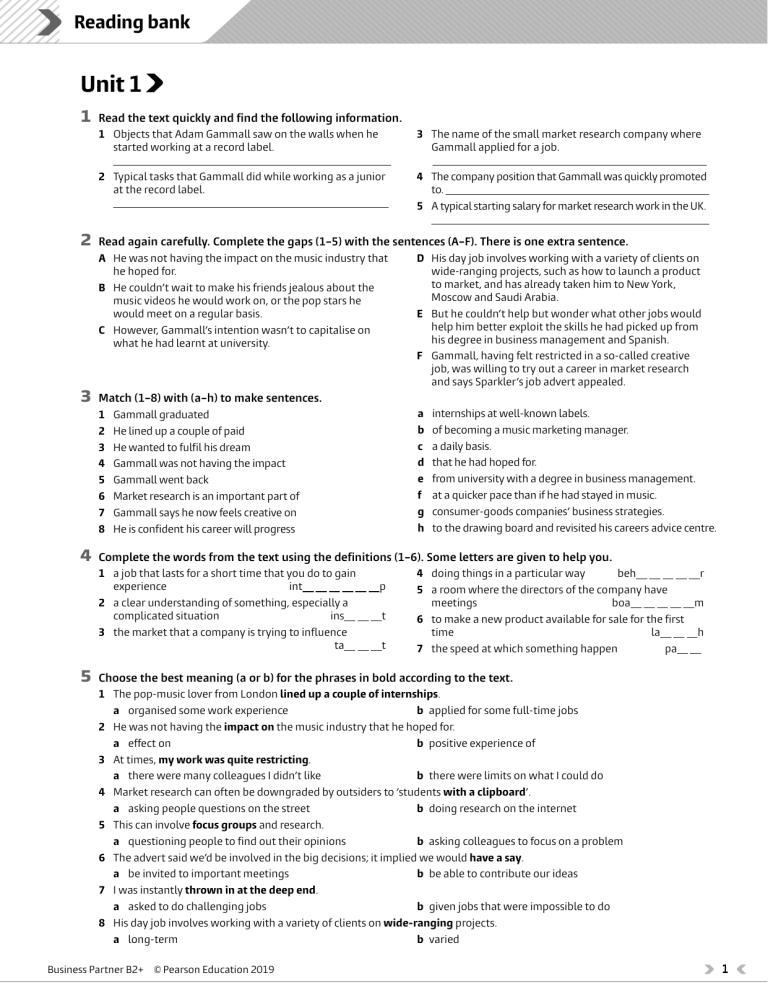
Reading bank Unit 1 1 Read the text quickly and find the following information. 1 Objects that Adam Gammall saw on the walls when he started working at a record label. 3 The name of the small market research company where Gammall applied for a job. 2 Typical tasks that Gammall did while working as a junior at the record label. 4 The company position that Gammall was quickly promoted to. 5 A typical starting salary for market research work in the UK. 2 Read again carefully. Complete the gaps (1–5) with the sentences (A–F). There is one extra sentence. A He was not having the impact on the music industry that he hoped for. B He couldn’t wait to make his friends jealous about the music videos he would work on, or the pop stars he would meet on a regular basis. E But he couldn’t help but wonder what other jobs would help him better exploit the skills he had picked up from his degree in business management and Spanish. C However, Gammall’s intention wasn’t to capitalise on what he had learnt at university. 3 4 5 D His day job involves working with a variety of clients on wide-ranging projects, such as how to launch a product to market, and has already taken him to New York, Moscow and Saudi Arabia. F Gammall, having felt restricted in a so-called creative job, was willing to try out a career in market research and says Sparkler’s job advert appealed. Match (1–8) with (a–h) to make sentences. 1 Gammall graduated a internships at well-known labels. 2 He lined up a couple of paid b of becoming a music marketing manager. 3 He wanted to fulfil his dream c a daily basis. 4 Gammall was not having the impact d that he had hoped for. 5 Gammall went back e from university with a degree in business management. 6 Market research is an important part of f at a quicker pace than if he had stayed in music. 7 Gammall says he now feels creative on g consumer-goods companies’ business strategies. 8 He is confident his career will progress h to the drawing board and revisited his careers advice centre. Complete the words from the text using the definitions (1–6). Some letters are given to help you. 1 a job that lasts for a short time that you do to gain experience int p 4 doing things in a particular way 2 a clear understanding of something, especially a complicated situation ins 5 a room where the directors of the company have meetings boa m t 3 the market that a company is trying to influence ta 6 to make a new product available for sale for the first time la h t beh 7 the speed at which something happen r pa Choose the best meaning (a or b) for the phrases in bold according to the text. 1 The pop-music lover from London lined up a couple of internships. a organised some work experience b applied for some full-time jobs 2 He was not having the impact on the music industry that he hoped for. a effect on b positive experience of 3 At times, my work was quite restricting. a there were many colleagues I didn’t like b there were limits on what I could do 4 Market research can often be downgraded by outsiders to ‘students with a clipboard’. a asking people questions on the street b doing research on the internet 5 This can involve focus groups and research. a questioning people to find out their opinions b asking colleagues to focus on a problem 6 The advert said we’d be involved in the big decisions; it implied we would have a say. a be invited to important meetings b be able to contribute our ideas 7 I was instantly thrown in at the deep end. a asked to do challenging jobs b given jobs that were impossible to do 8 His day job involves working with a variety of clients on wide-ranging projects. a long-term Business Partner B2+ © Pearson Education 2019 b varied 1 Reading bank Finding a creative career in an unexpected place Like many hip, young things about to graduate from university, Adam Gammall had always pictured himself taking up an equally hip job in the UK’s creative sector. The pop-music lover from London wanted to work in Britain’s music industry and lined up a couple of paid internships at well-known record labels, before and after graduating. 5 Gammall, now twenty-five, was on the right path to fulfilling his dream of becoming a Music Marketing Manager within about five years, or so he thought. 1 It soon became apparent, however, that working in music was not as good as people say it is. He remembers his first day at a record label well. ‘It was really exciting; platinum discs of artists I recognised lined the walls and I remember thinking, am I going to meet one of these singers?’ 10 15 But after three placements at various companies, Gammall realised the work he would be doing in real life didn’t match his dream. 2 ‘At times it was quite restricting. I realised big decisions were being made around me and I was nowhere close to being part of those decisions. We weren’t invited to the big meetings with senior management and didn’t have a say,’ he says. ‘A lot of the junior work was to do with logistics and processes – and you appreciate that has to be you – but there was hardly any creativity.’ Having said that, Gammall believes his time in the music industry was an ‘excellent’ learning experience and gave him insight into a professional business. 3 20 It was then that Gammall went back to the drawing board and revisited his university careers advice centre for help. He spotted a paid internship at Sparkler, a small market research company working with the likes of Nokia, Kraft and the BBC. Market research typically involves big consumer brands, charities and governments working with market research agencies like Sparkler to help them better understand their target audience and market their products and services accordingly. 25 30 35 According to Jane Frost, Chief Executive of the Market Research Society, market research is an important part of consumer-goods companies’ business strategies, but it can often be downgraded by outsiders to ‘students with a clipboard’. ‘People have a weird idea about the industry,’ she says. ‘You can spend your entire life in market research and never go near a clipboard. Market research is about designing an answer to a problem. This can involve focus groups and research, but it’s also about observing behaviour and psychology.’ 4 ‘They were looking for junior-level people with bright ideas who were creative. The advert said we’d be involved in the big decisions and working with senior members of the team; it implied we would have a say,’ he says. Gammall applied and got the placement, which soon turned into a full-time graduate position. Within months, Gammall was promoted to a consultant. ‘I was instantly thrown in at the deep end,’ he says ‘I felt like my opinion mattered. I’d gone from photocopying to being in a boardroom and having twenty people looking at me and expecting me to say something.’ He has now been at Sparkler for eighteen months and says he feels creative on a daily basis. 5 40 Gammall is confident his career will progress at a quicker pace than if he had stayed in music. ‘If someone had told me two years ago I’d be working in market research, my perception of the industry would have put me off,’ he says. Jane Frost says market research work encourages creative thinking and a range of business skills. She says graduates in the UK start on between £18,000 and £25,000, but can climb the career ladder to earn executive salaries within a few years. Business Partner B2+ © Pearson Education 2019 2
